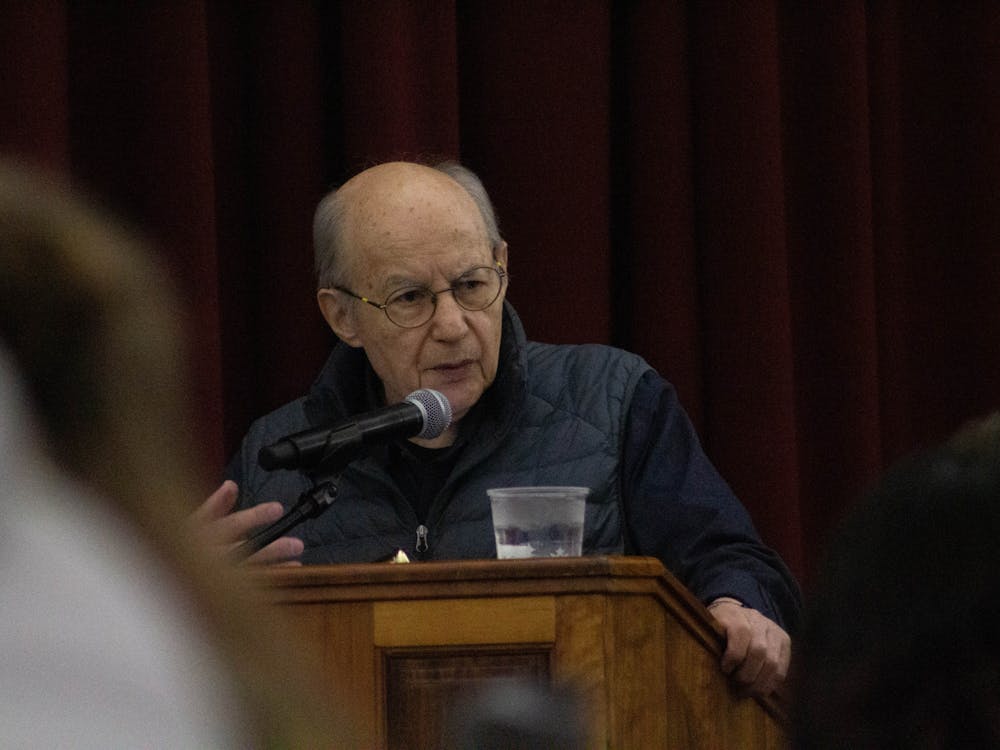Rene Litchman: A Jewish child in hiding

Central Michigan University’s Jewish community, Hillel at CMU, honored Holocaust Remembrance Day by hearing the story of Holocaust survivor, Rene Lichtman, at 7 p.m. on Jan. 25 in the Bovee University Center Rotunda
Lichtman is an 86-year-old Holocaust survivor, who experienced antisemitism and the Holocaust as a child in hiding. Litchman is a founder of Hidden Children and Child Survivors of Michigan in 1992.
“Out of the six million Jews that were murdered, a million and a half were just children," Litchman said, "Ninety percent of Jewish children had perished and the ten percent of us survived in hiding."
During the beginning stages of the World War II, Litchman’s father was able to secure a hiding place for him where Jewish children were accepted. Litchman stayed with a French Catholic family, apart from his mother in Paris, for the duration of the war.
“You can see in this photo, my mother is smiling, Litchman said. "It is one of the few photos where she looks happy. After that picture she didn’t smile anymore.
Litchman said Nazi killed so many children because they believed that Jewish children would grow up to be avengers of their family.
Litchman lived with Anne and Paul Lepage in a countryside home an hour outside of Paris. The town was considered left-wing internationalists, allowing a safe place for Jews, veterans of the Spanish civil war and anti-factist Italians.

“They were the only family I knew because my mother was unable to come visit," Litchman said, "I did not have any friends because I was hiding."
Coincidentally, a German internment camp was right around the corner from where Litchman was in hiding.
When liberation came, Litchman recalled how it was very difficult because when many would go back home; for him, there was nothing there to go back to.
“After the war my mother was never happy," Litchman said, "None of these people were happy because they lost everything (like) her husband (and) all her relatives."
Due to Litchman being brought up in a French Catholic home, when he was liberated from hiding, he didn’t have any sense of identity or connection to his Jewish roots. He claims he just missed his French family.
“For those of us who were raised not Jewish, the idea of Jewish culture was more like ‘what does it mean?’” Litchman said.
At 13-years-old, Litchman said it was the period of time when he really found his sense of Jewish identity when he moved to Brooklyn, New York in America.
Litchman continues to do research on his family in Poland and France, as well as, making trips back to the towns he was raised in.
“Any survivors will tell you when interviewed to question authority," Litchman said, "Question peer, political authority, the public because that is what they had to do when surrounded by Jewish haters."



